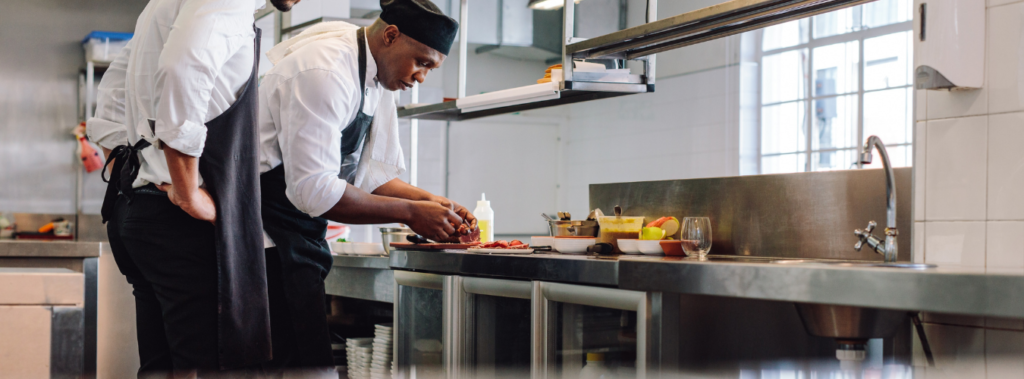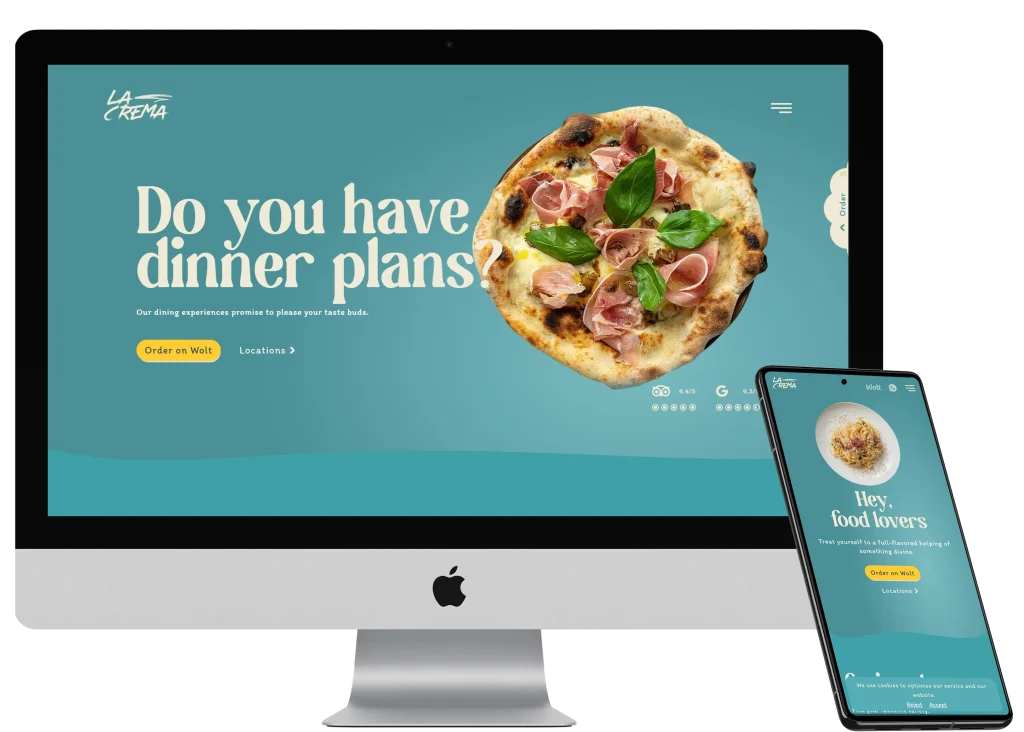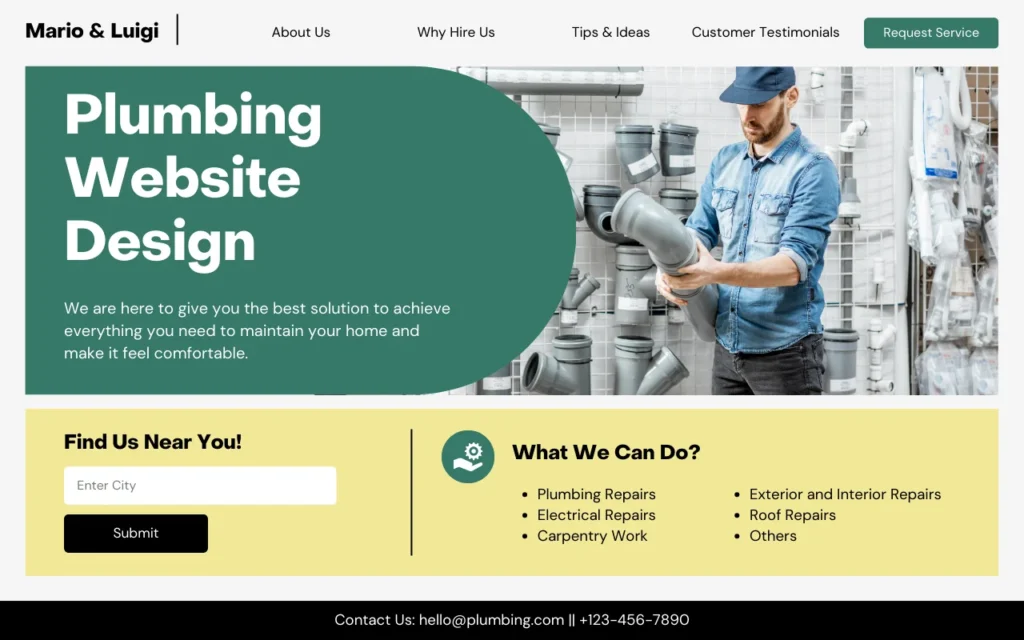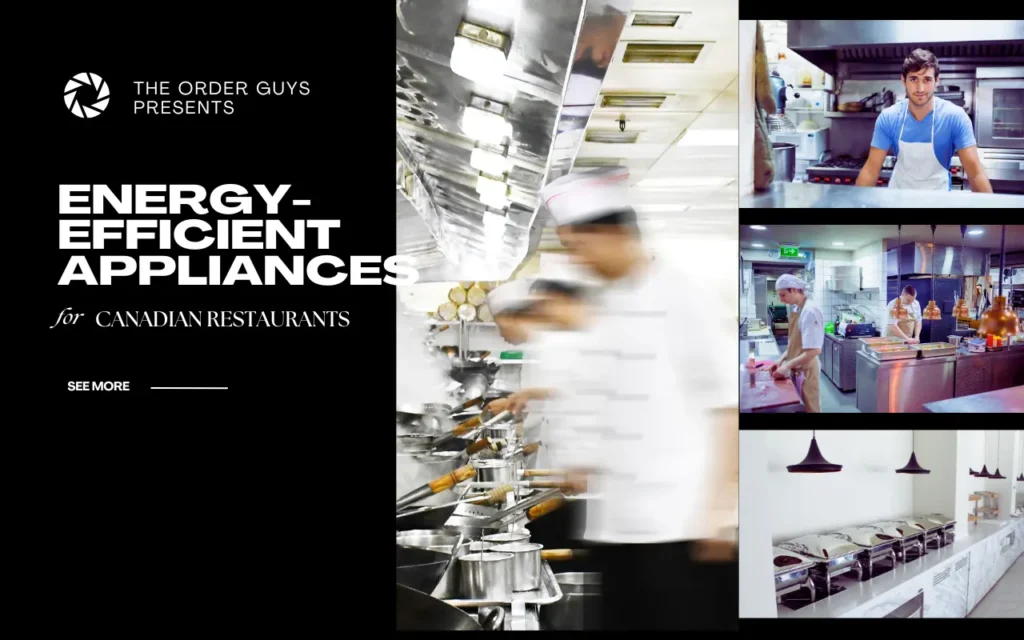Is it possible to do good keyword research for free in 2021?
Any good project or business plan involves planning. Whether that is opening a restaurant, developing a website or deciding your short/long term business or career goals. SEO is no different. Keyword Research is an integral part of SEO planning.
Keyword research ultimately arms you with informed decisions on what keywords to target.
With keyword research for your restaurant you can identify highly relevant, lower competition and high volume search terms.
Leverage the power of Google and Google sheets and see how you can do some basic keyword research for free ( really it is for free )
1. Use Google Search and think about Relevant keywords to your business
Step 1 involves thinking about what keywords you want to show up for on Google search. This might seem pretty obvious. For example, if you are a restaurant you want to show up for you restaurant name and people searching for your cuisine type and the types of food you offer.
For example, if you have a Mexican restaurant called Tacofinity in Edmonton you will want to show up for keywords like
- Tacofinity
- Tacofinity Edmonton
- Tacos in Edmonton
- Best Tacos in Edmonton
- Best Mexican Food Edmonton
- authentic Mexican food Edmonton
- Where to get tacos
- Taco Tuesday
- Taco Tuesday Specials
- Taco Tuesday Deals
- Taco Tuesday Downtown Edmonton
Type in these keywords into Google Search related to your business. Google search has something called autocomplete which means that it gives the user search suggestions based on popular queries, ie what people are often looking for.
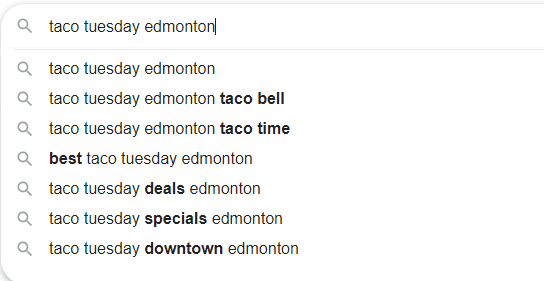
The autocomplete feature will often give you good ideas of some keywords that you might have not thought of before as well.
Using the “Search Related” Feature
On Google Search you can also scroll to the bottom of the search results to find the “Search Related” section. This is section will give popular search terms in your area related to the keyword you typed in. These will give you additional suggestion that you might be able to use, or at least give you further keyword ideas.
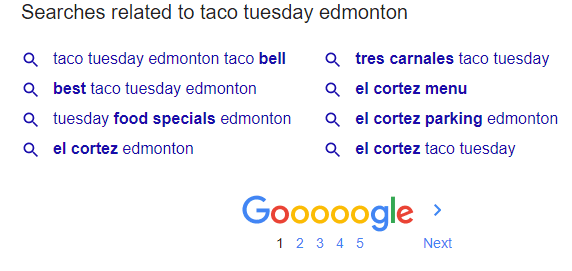
2. Google Keyword Planner to the Rescue
Now that you have a list of keywords relevant to your restaurant that you want users to find you on, head over to the Google Keyword Planner. This is a free tool that shows you keywords stats. To get started with using the Keyword Planner you will need to create a Google Ads account. You can do this for free by going through the setup and then pausing all your ads so you are not paying. You might also be eligible for free advertising credit if you setup through Google My Business. This article shows you how to setup and get started with the Keyword Planner
Once you have setup your Google Ads account and paused your ads if you don’t want to spend money on advertising you can click on “Get Search Volume and Forecasts”
Most likely you will have to switch from Beginner to Expert Mode in order get access to the full Google Ads Platform.
Once you do that head over to Tools and Settings => Planning => Keyword Planner
Next click on “Get Search Volume and Forecasts”
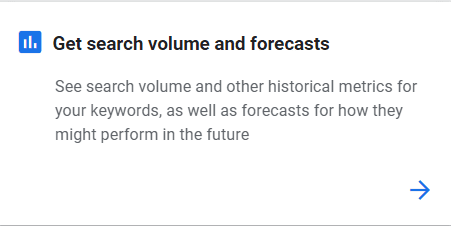
You can then copy and paste all the keywords related to your restaurant business that you want to show up for.
Forecasts gives you a pretty good summary overview of the amount you will spend, the impressions, and costs for a given daily budget. While this is handy for running online ads it is not too useful for SEO planning. For that, head over to the Historical Metric Tab

In the historical metrics tab you will see average monthly searches and the competition column.
You want to use keywords that have high average monthly searches and low competition.
3. Calculate your KEI score
KEI stands for Keyword Effectivness Index.
With Google Keyword Planner you get a qualitative sense of a keywords potential by looking at the average monthly searches and the competition. What KEI does is it puts this into an actual number by dividing the average monthly searches by the keyword competition.
KEI = average monthly searches / competition
There is one issue though. Google Keyword Planner does not give you the “competition” as a number, only high, medium and low.
To get the competition number we must go back to Google Search and type in your keyword with allintitle like shown below
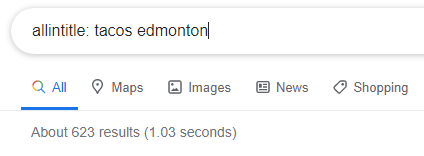
What allintitle does is it gives us the number of web pages that have our keyword in the title. If a website has a keyword in its title than it also wants to show up for that keyword in Google Search. In the search terms below you will see that all the titles in the search results contain that keyword. Google gives me the result right below, 623 results!
So 623 is my competition. Remember that number.
What is our monthly search volume, we already was given it by Google Keyword Planner, in my area it is 720.
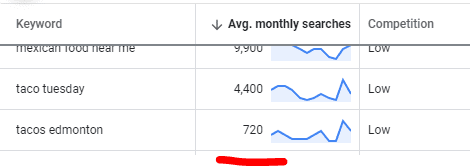
So now plugging this into our formula above:
KEI = average monthly searches / competition
KEI = 720 / 623
KEI = 1.15
So we have a number now! Is it good though? What does it mean? Good or not really depends on a lot of factors such as your industry and area. I believe there is no “magical” KEI number. The higher the KEI the better and typically 0.5 or higher is generally pretty good.
The best is to compare it relative to the other keywords you are trying to optimize for. If you are a restaurant, it will also vary by location. For example, Best Tacos in New York will have much more competition, but it will also probably have a lot more people searching for it!
Lets do another example then for the keyword Best Tacos
KEI (Best Tacos) = 480/ 250,000
KEI (Best Tacos) = 0.00192
Clearly the competition is a lot more fierce for this keyword and the relative number of search volume is lower in my region. Therefore the first keyword is a much much better choice to optimize for.
Put the rest of your keywords into a spreadsheet that looks promising in Google Keyword Planner and jot down the average monthly searches and competition for each. This will allow you to more quickly calculate and compare the KEI for each one and give you a data driven and informed decision on what keywords your restaurant should be focusing on.
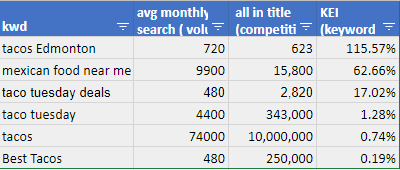
Here is an example spreadsheet to get your started with your restaurant keyword research and planning! You should reevaluate and recalculate your KEI every couple months as things always change on the internet!
Note: It only has to contain that keyword in the title, not necessarily be an exact match.

